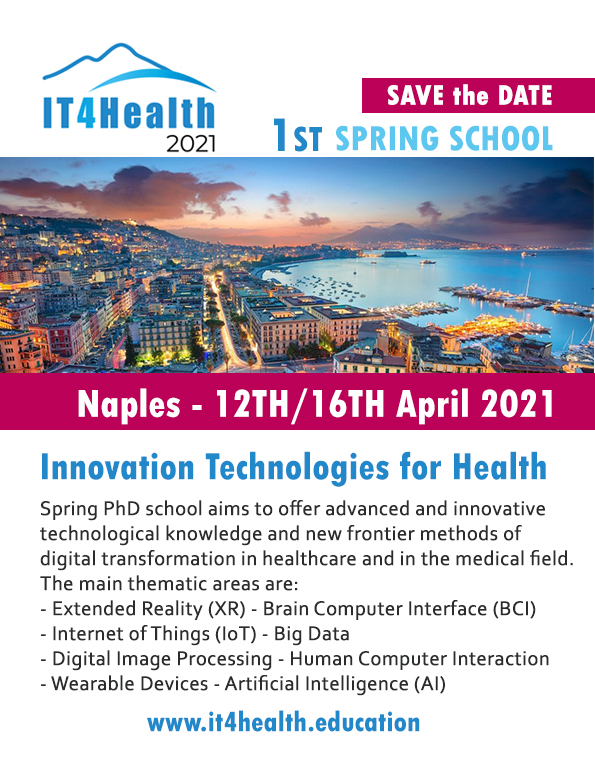
The Innovation Technology for Health spring doctoral school is a new educational initiative promoted by “Villa delle Ginestre srl”, “Università del Salento” and “Università di Napoli Federico II”.
The school, with a holistic and global approach, aims to offer advanced and innovative technological and IT knowledge and new frontier methods of digital transformation in healthcare and in the medical field.
The educational offer is characterized by an innovative interdisciplinary training in the field of engineering, computer science and their implications, implementations and technological developments in the field of medical applications addressing a variety of problems, methodological issues and aspects of practical interest, related to innovative technologies for health.
The strength of the school consists in the interaction between the university world and private research structures: on the one hand, universities represent the main pool of technical and scientific skills that provide highly qualified human resources, on the other hand private structures operate concretely in reality of medical health care and rehabilitation services.
The training activities are divided into a series of lessons focused both on the theoretical aspects and on the practical and applicative repercussions in the medical field of the knowledge transmitted. Lessons are held by nationally and internationally renowned professors in the IT fields such as: XR – Extended Reality , BCI – Brain Computer Interface, IoT – Internet of Things, Big Data, Digital Image Processing, Human Computer Interaction, Wearable Devices, AI – Artificial Intelligence.
The school is addressed to a public of public and private research specialists such as doctoral students and company researchers. Furthermore, the school wants to promote the diffusion of ideas and the sharing of knowledge in these research areas among young researchers from Italy and abroad.
The Doctoral School is organized in April and for its first edition the course will be held in Naples. There are morning and afternoon lessons, for a total of about 30 hours. Lessons will be interspersed with coffee and lunch breaks. The scientific committee has also scheduled a posters session in which the best works (in three different scientific areas) will be awarded during the gala dinner. A final exam for certification of skills is expected at the end of the lessons, with the issue of the certificate of attendance.
